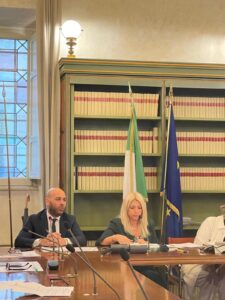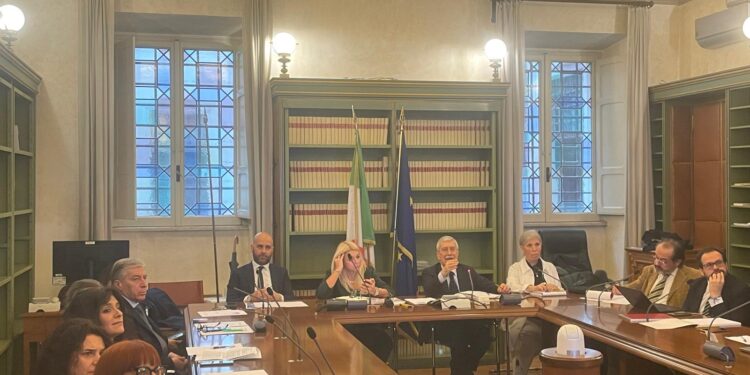Rome – The first meeting of the European Parliament’s Interest Group on Health Promotion, chaired by MEP Michele Picaro (FdI/ECR), was held today in Rome. The group, comprising 19 MEPs from different political sides, was created to put health promotion at the center of European policies.

“It is a great honor for me to lead this intergroup,” Picaro said. “I would like to thank the Lumen Foundation and its President, Milena Simeoni, for the trust placed in me and Secretary Federico Palla for his invaluable support. Many thanks also to Senator Elena Murelli, who welcomed us here today and whose commitment to the Italian Parliament will be a fundamental bridge between national and European institutions.”
During the meeting, initial goals and activities planned for 2025 were presented. The group will work to maintain an ongoing dialogue with the European Commission, emphasizing written questions and active participation in public consultations. Bilateral meetings are also planned with officials from the Directorates-General, including DG SANTE, to discuss and propose initiatives based on sound scientific evidence.
A highlight will be a webinar on World Health Day, April 7, involving international experts and policy representatives to discuss best practices and strategies for optimal health.
Picaro then announced an event dedicated to the Mediterranean Diet in June 2025, aimed at enhancing the nutritional qualities of this food model and its cultural value. In this context, the issue of food labeling will be central: “We are opposed to systems such as the Nutri-Score, which risk misleading consumers, and we will work to promote more transparent and reliable labels,” the MEP stressed.
Picaro also highlighted how Europe is increasingly placing health issues at the center, recalling the recent transformation of the SANT subcommittee into a full-fledged commission. “A clear signal of the commitment of the European institutions to putting public health at the center of EU policies,” he said. “With the Interest Group, we will also collaborate with other committees, such as CULT, because health promotion is a challenge that encompasses the educational, social, and cultural spheres.”
Picaro concluded by stressing the importance of collective work. “Health promotion is not just a health issue, but an ethical commitment to every European citizen’s well-being and quality of life. Only by joining forces can we build a healthier and more inclusive society.”
English version by the Translation Service of Withub
![[foto: Wikimedia Commons]](https://www.eunews.it/wp-content/uploads/2025/04/alzheimer-350x250.png)
![[foto: Igor Gorshkov, WIkimedia Commons]](https://www.eunews.it/wp-content/uploads/2025/04/Dinner_Degustation_203239353-350x250.jpeg)


![Occlusione delle arterie [foto: Wikimedia Commons, Blausen.com staff courtesy of Oregon State University]](https://www.eunews.it/wp-content/uploads/2025/03/Atherosclerosis-350x250.jpg)




